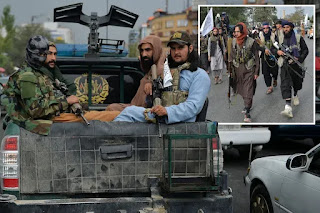
Child abusers from a British religious community should not be reported to the police, one of its leaders has argued.
Paltiel Schwarcz, a leading rabbinical authority among ultra-Orthodox Jews, said informing statutory authorities in the UK of a suspected Jewish child sex offender was generally “a severe sin”.
His written opinion contradicts claims made by an ultra-Orthodox leader last year in evidence to the independent inquiry into child sexual abuse. The report on the inquiry’s investigation of child protection in religious organisations is due to be published tomorrow.
Schwarcz, 37, presents several instances in which it is forbidden to report child sexual abuse by a Jewish person to “gentile” authorities. They include when the abuser is married with children, because his family would be “destroyed”, and when the abuser can be treated with “medical methods” to “prevent him from carrying out such acts”.
Schwarcz, a judge in a Jewish religious court, said it was not permitted to report an abuser to police if the victim was a girl aged 12 or older or a boy aged 13 or older. A copy of his paper was submitted to the inquiry last week by Migdal Emunah, a charity that helps Jewish victims of sexual abuse. The inquiry said it had “arrived too late to be taken into account”.
Yehudis Goldsobel, the charity’s chief executive, said yesterday that reluctance to report cases of child abuse was a “day-to-day lived experience for Charedi [ultra-Orthodox] victims of sexual abuse”.
Britain’s ultra-Orthodox population, concentrated in Essex, Gateshead, London and Manchester, numbers about 70,000 — a minority among a Jewish population of 300,000. However, a fertility rate between six and seven children per woman led the Institute for Jewish Policy Research to forecast in 2018 that ultra-Orthodox Jews were “expected to constitute a majority of the British Jewish population long before the 21st century is over”.
The insularity of ultra-Orthodox Jews and their distrust of outsiders present a safeguarding risk. In 2013 an episode of Dispatches on Channel 4 showed undercover footage of Rabbi Ephraim Padwa, an ultra-Orthodox authority, telling an alleged child abuse victim that he should not speak to the police.
Padwa is the leader of the Union of Orthodox Hebrew Congregations. More than 100 synagogues are members of the union, and many other ultra-Orthodox organisations, including schools, are affiliated to it. In the footage he said it was mesirah to contact the police. Under Jewish religious law mesirah, or informing on a fellow Jew to statutory authorities, is banned. In evidence to the inquiry last year Rabbi Jehudah Baumgarten said mesirah was “not applicable where the person being reported was causing harm to others, such as in cases of child sexual abuse”.
Schwarcz is one of the union’s senior rabbis. His paper in April, seemingly sent in response to a request for advice on a specific case of suspected child abuse, is in stark contrast to Baumgarten’s evidence.
The former, from Stamford Hill in north London, sits as a judge (dayan) on the union’s religious court (beth din), heads two of its committees and was hailed by the union last month as a “great scholar”. His nine-page opinion, written in Hebrew, cites Jewish scholars from the 13th to the 20th centuries to support his argument that almost no circumstances exist in which it is permitted to report a Jewish child abuser to the police.
The union said the evidence given on its behalf to the inquiry last year “clearly and unambiguously presented the position of the union that mesirah does not apply where the person being reported is suspected of causing criminal harm to others, such as in the case of child abuse”.
A source close to the union had said Schwarcz was “entitled to his opinion”, but yesterday a spokesman claimed his paper was “merely an unaddressed, unsigned, incomplete” draft of an academic dissertation that he “sent for review and consultation regarding its standing in English law”.











